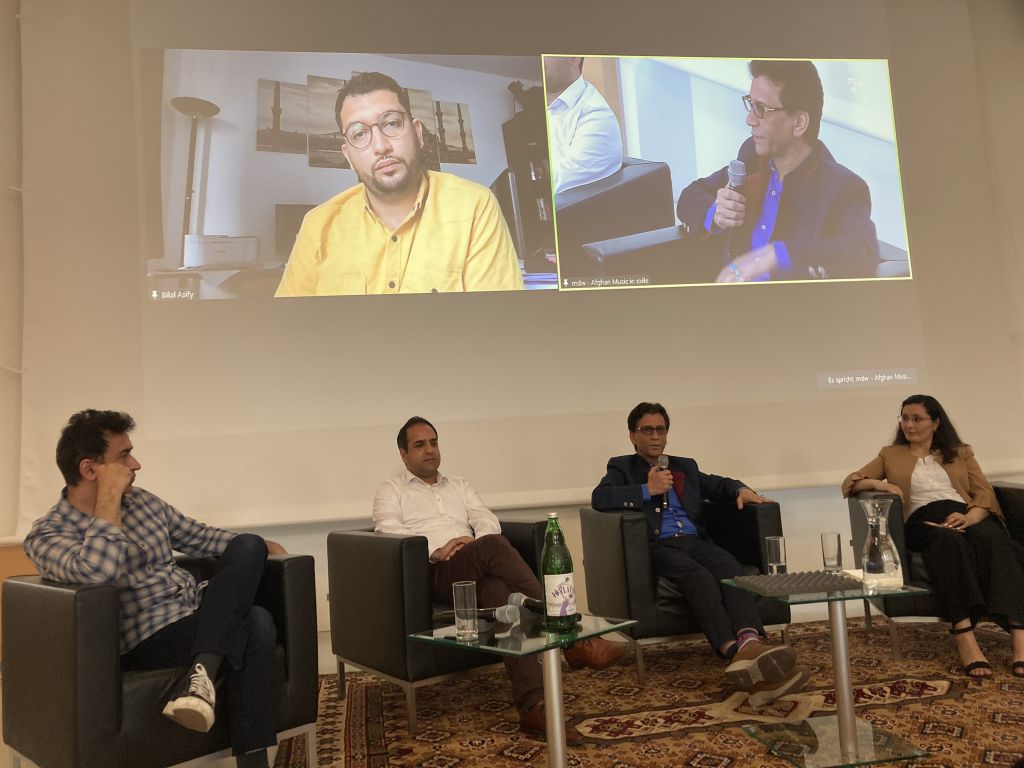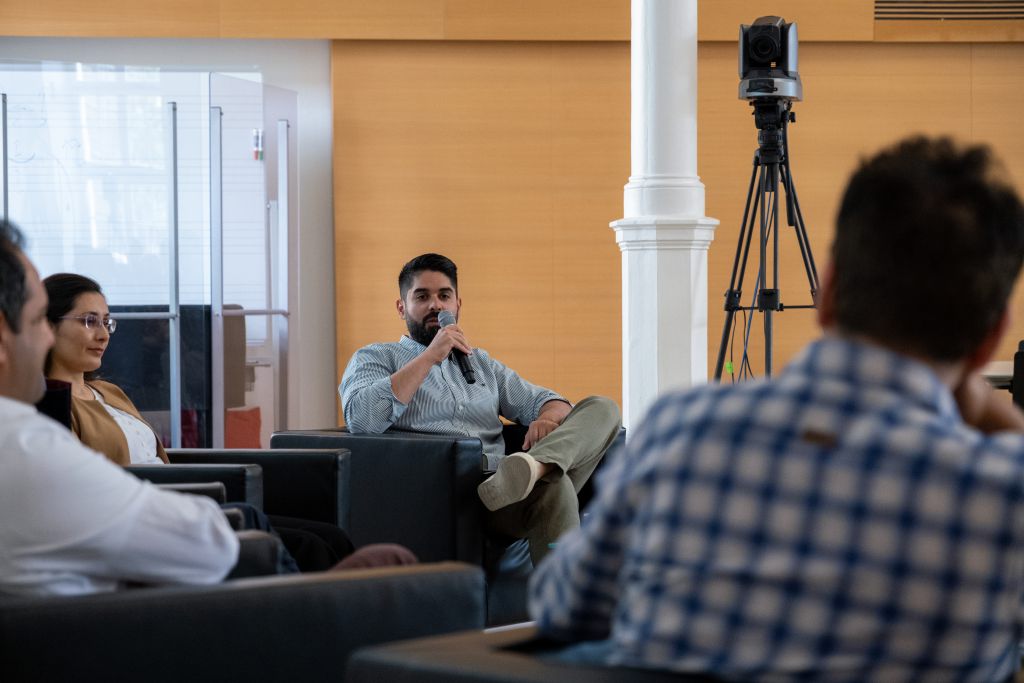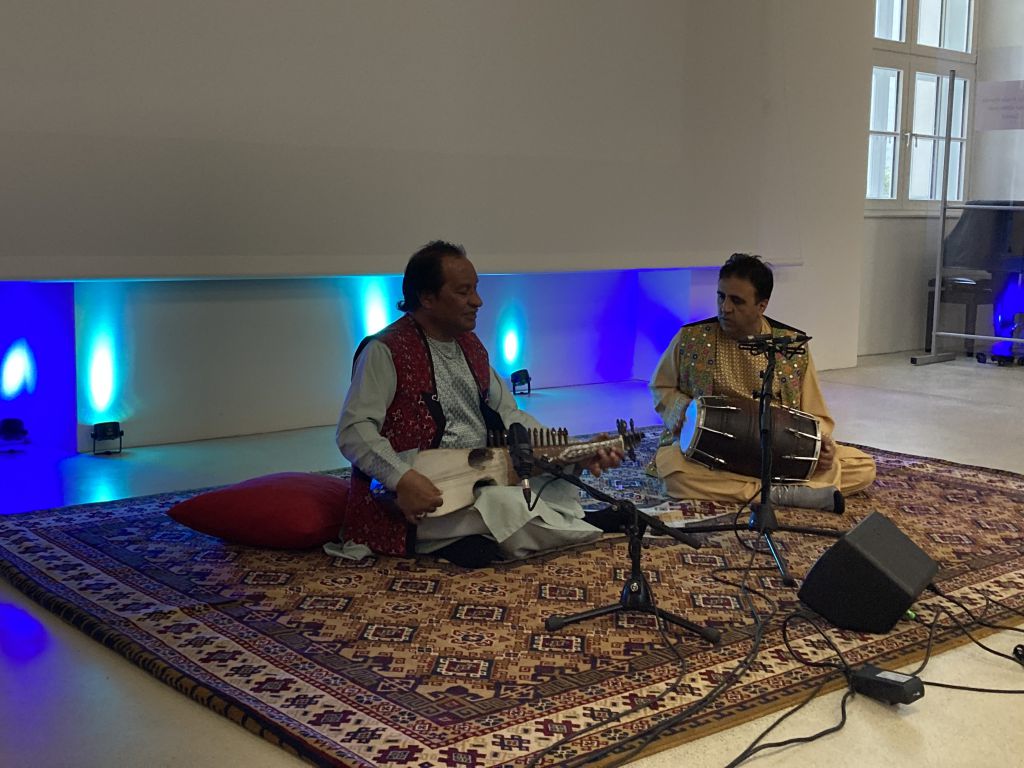A Study Day on the Music of Afghanistan
A study day held on 2 June brought an urgent theme to the mdw. This single-day event, entitled Afghan Music in Exile. Views on the Current Situation, was initiated by Marko Kölbl (of the Department of Folk Music Research and Ethnomusicology) and Peter Lell (a PhD candidate in the structured doctoral programme Music Matters) and devoted entirely to the music of Afghanistan. Special emphasis was placed on the current situation of musicians and the music scene, with the firm intent being to shed light on these circumstances from the perspective of Afghan experts.

The backdrop against which this took place was the takeover of power in Afghanistan by the radical Islamist Taliban movement in August 2021, whereupon any and all music-making was forbidden. Since then, musicians have been discriminated against, persecuted, and in several cases even murdered. The Taliban had already ruled the country between 1996 and 2001, during which time there was likewise a ban on all music-making with the exception of their own chants of praise, known as taranas. Back then, musicians had fled in droves to live in exile in Pakistan, Iran, or the West. But in 2002, with the Taliban defeated for the time being, a comparatively peaceful and fruitful period dawned for society and for music in Afghanistan. Numerous music-related institutions were founded or rebuilt, including the Afghanistan National Institute of Music (ANIM), the music department of Kabul University, and the Aga Khan Music Initiative (AKMI). With the Taliban’s renewed seizure of power in August 2021, all of these institutions were once again closed and their members driven underground or into exile.

It proved possible to have several principal representatives of these circles on hand at the mdw study day to speak and engage in discussion about their musical institutions, the current situation, and the music scene as a whole. Bilal Asify provided a look at the situation of Afghanistan’s most important music school (ANIM), which has now re-established itself in Portuguese exile and looks forward to a new future there despite multiple inhibiting factors. Wahedullah Saghar, former head of the music department of Kabul University, spoke about this sole tertiary-level Afghan musical institution, its role in Afghan society, and the present-day situation; Saghar himself had to leave the country in August 2021, since which time the music department has been completely closed. Musicologist Mirwaiss Sidiqi presented an overview of the music of Afghanistan, the “golden era” of Afghan music during the 1960s, and his participation in developing a programme of musical training at AKMI. Fazila Zamir, the country’s first female rubab player to have trained in this programme, spoke about the role of women in Afghanistan’s musical history, the societal hurdles they have faced, and how she ended up discovering and traveling her own musical path. The significance of state broadcaster Radio Television Afghanistan (RTA) and its historically unique music archive became clear in a conversation with Abdul Wahab Sarwary and Mohammad Sediq Zarifyar. The RTA Music Archive has remained in the Afghan capital of Kabul and is therefore in acute danger of arbitrary destruction by the new authorities.

The diverse themes covered by this study day were examined and discussed as a whole with a consistent eye to the current political situation. Austrian-Afghan journalist Emran Feroz assumed a mediatory role in the overall event, opening this study day with a very personal introduction and concluding it as moderator of the final panel discussion. This discussion represented the day’s deliberative climax, opening up exchange between all of the invited experts concerning both the present situation and possible ways of supporting the country’s musicians. Particularly the consequences of numerous protagonists having been forcibly scattered across a number of different countries were identified as a major hindrance to building up an active musical scene, for which reason the urgent need for transnational networking and cooperation was also discussed.
Following a meal featuring Afghan specialities, the day’s activities reached their artistic climax with a concert by two of Afghanistan’s musical masters, Ustad Ghulam Hussein on the rubab and Ustad Latif Sharifi on the dhol. The two masters’ musical performance was celebrated with tumultuous applause and a standing ovation on the part of the Banquet Hall’s capacity audience.
Further informationen:
You can listen to selected contributions and the concert “Traditional Music of Afghanistan” on Radio FRO.

